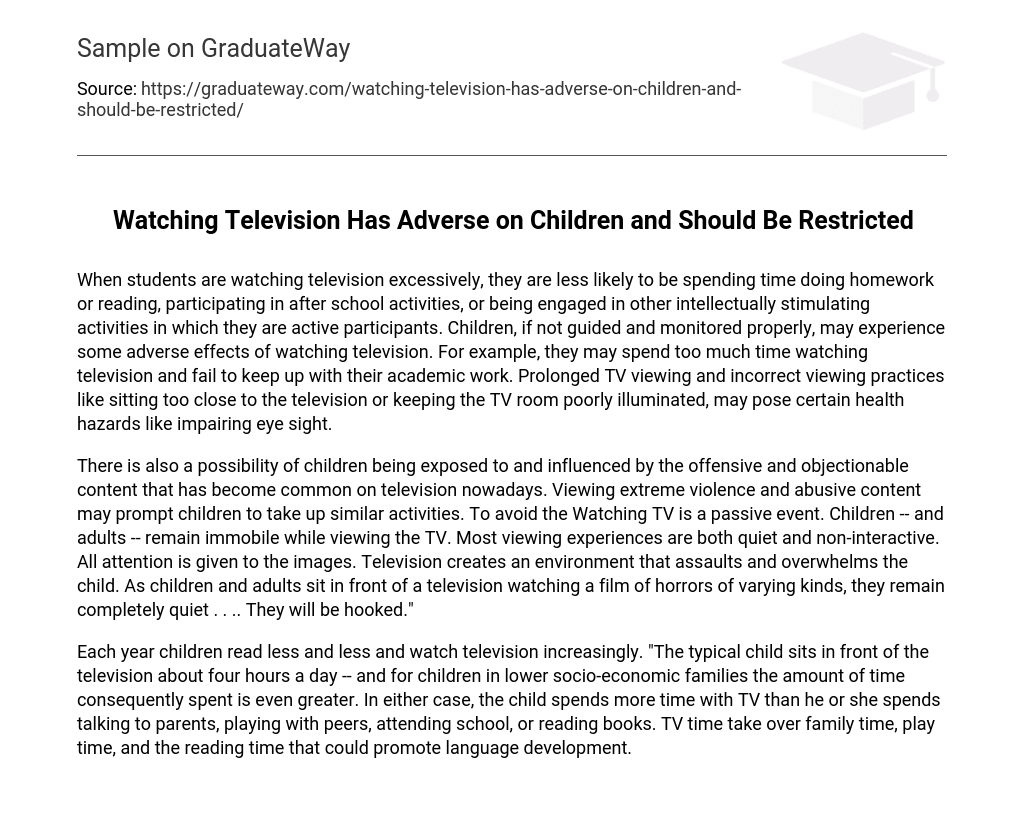Excessive television watching among students can result in reduced engagement with homework, reading, after school activities, and other intellectually stimulating tasks. If not properly guided and monitored, children may face negative outcomes due to excessive TV viewing, such as neglecting academic responsibilities. Additionally, prolonged periods of television watching and unhealthy viewing practices (such as sitting too close or in poor lighting conditions) have the potential to harm eyesight.
There is worry about children being exposed to offensive and objectionable content on television, which can have a detrimental effect on them by causing them to imitate extreme violence and abusive behavior. It is crucial to recognize that watching TV is a passive activity for both children and adults, as they tend to remain motionless and quiet while completely engrossed in the visuals. Television has the power to captivate and overpower children, who become intensely absorbed in what they are watching as they sit quietly in front of the TV screen, even when watching horrifying movies.
Children’s reading time has decreased while their TV viewing time has increased. On average, children spend about four hours daily watching television, with even longer durations for those from lower socio-economic backgrounds. Consequently, children opt for TV over activities like conversing with parents, playing with friends, attending school, or reading books. This excessive TV consumption is substituting crucial family bonding moments, playtime, and reading opportunities that could enhance their language development.





